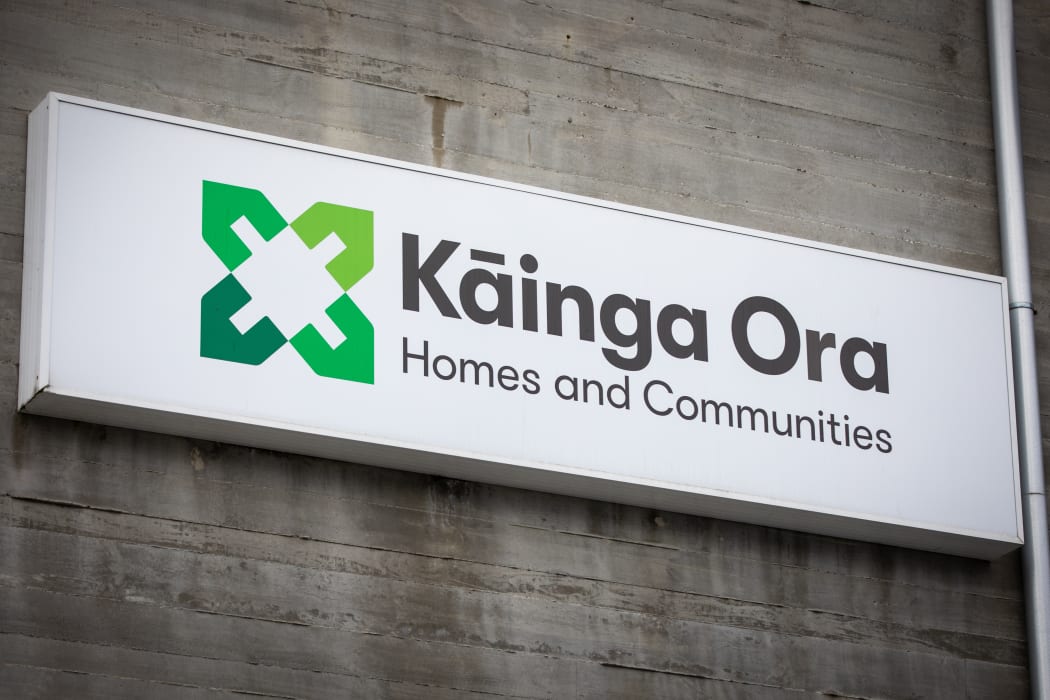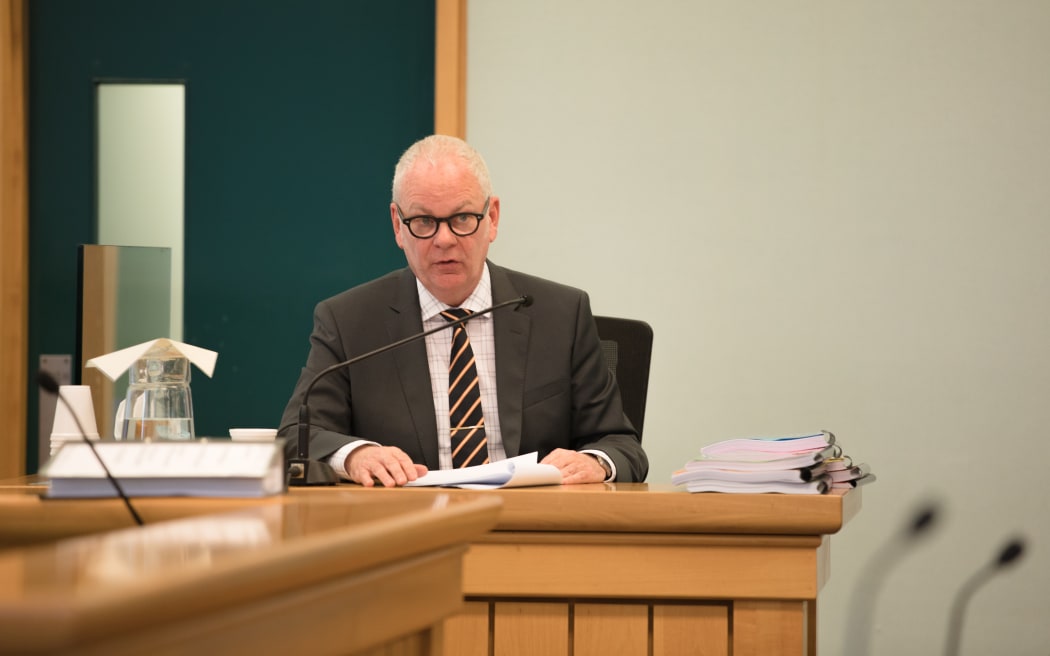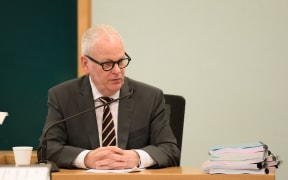Government housing agency Kāinga Ora failed to meet standards of political neutrality, the Public Service Commissioner has found.

Photo: RNZ / Nate McKinnon
Commissioner Peter Hughes said the agency had failed to do the right thing on political neutrality, which is a fundamental principle in the New Zealand public service.
The commissioner investigated at Housing Minister Megan Woods' behest after the National Party criticised what it saw as a cover-up and culture of deceit at the agency.
Kāinga Ora had published an advertorial in May 2020 featuring Arena Williams which focusing on the community spirit at the Hobsonville Point development.
Documents released under the Official Information Act in November revealed staff had become aware she would run as a Labour candidate, and discussed how to handle the matter politically.
Williams, now an MP, had herself raised concerns about it, and one email between staff later showed the response: "I assured her it wasn't a problem in my view and we could proceed as though we didn't know about her impending announcement".
Hughes today said the emails suggesting the agency pretend it did not know about her candidacy were unacceptable.
Kāinga Ora had two opportunities to take the correct approach, but did not, he said.
"It should not have published the article in the first place and the moment Ms Williams announced her candidacy, Kāinga Ora should have taken the article down. This did not happen. It remained online throughout the 2020 election campaign.

State Services Commissioner Peter Hughes. Photo: RNZ / Cole Eastham-Farrelly
"I expect Public Service agencies to consider whether it is appropriate for public funds to be used to give positive exposure to a political candidate in this way. Government advertising must always be impartial and free from partisan promotion of government policy and political argument," he said.
In his findings, he said the original decision to publish the article was wrong, but the main concern was how Kāinga Ora responded when it came to light.
"The agency did not acknowledge its mistake and maintained a position that minimised the issues and contained some factual errors."
The emails between officials included discussion that "we can just act as though we don't know anything", and removing a mention of Williams' candidacy from the copy, saying it "keeps Kāinga ora's powder dry too!".
National's Housing spokesperson Nicola Willis urged the commissioner to investigate, saying it showed dishonesty and a disrespect for the public of New Zealand.
Housing Minister Megan Woods had also asked for a 'please explain' from the chief executive, saying she did not consider the issue to be taken as seriously as she would have expected.
Following the commissioner's investigation, Willis said the minister needed to do more.
"I am astonished that despite this damning report, no one at Kāinga Ora has been held accountable for its failure to meet its duties as a custodian of taxpayer money," Willis said in a statement this afternoon.
"Minister Woods must explain why she continues to have confidence in the leadership of Kāinga Ora when not one person has been held accountable for these extraordinary failings. Kāinga Ora's response to this investigation has been extremely weak and amounts to little more than the formation of a government relations team ... and an offer from the PSC to hold the hand of executives on future issues.
"New Zealanders deserve much better from an agency that employs more than a dozen people on salaries in excess of $300,000 a year."
Willis said Woods must act, to show the standard she would accept.
Woods, in a letter to Kāinga Ora's chair today, said she expected senior management to continue to actively monitor for the pattern of minimisation and devolved management of decisions seen in the matter.
She said she also wanted to underscore that "ultimately responsibility and accountability sit with the board. In particular, I expect Kāinga Ora to identify situation with potential risks early, identify and execute mitigation plans and assure itself that suitable managerial oversight is in place".
"I expect Kāinga Ora to improve and embed an enduring culture of understanding of how Kāinga Ora is part of the broader public service and what that means for staff employed within the organisation."
During his investigation, Hughes sought a summary of phone calls mentioned in the OIA release, a list of who knew about Williams' candidacy within the agency, a description of how the decision to proceed was made, an explanation of management controls over the sponsored article, a copy of statements made to the media, a description of steps taken by the agency to investigate and address the matter, and an explanation of lessons learned.
Hughes said the agency's chief executive had since assured him appropriate action had been taken to ensure there would not be a repeat of the incident.
"There have been changes to approval, escalation and issues management processes; increased communications and training in the organisation about public service responsibilities; and its governance capability and capacity has increased, with a particular focus on public sector experience. It has also requested ongoing support from the Commission."
"I'm satisfied the chief executive has owned it, fixed it and learned from it. That is what I expect."
In a statement, Kāinga Ora chair Vui Mark Gosche said the report showed the handling of the matter had been wrong, and the agency fully accepted that.
"It wasn't good enough. I have said publicly previously that I was not satisfied with the decision by Kāinga Ora and its subsequent handling of the matters. I have made it very clear that it was unacceptable and I expect that it will not happen again."
Gosche said the agency had in the past few months made further developments on how to approach political neutrality.
"This includes changes to its induction programme and training to highlight the environment Kāinga Ora works in, and the responsibilities employees have as public servants ... the agency has also made changes to approval, escalation and issues management processes and has enhanced its governance capability to provide advice and guidance on public sector standards,
expectations, obligations and accountability."
Woods said she would discuss agency changes and a continued action plan as a standing item in her regular meetings with the chair.
"I expect that we will establish a process where the Board reports to me with regular updates on this work as it is embedded and this should include engagement with the Commission to ensure that it has a meaningful impact."




